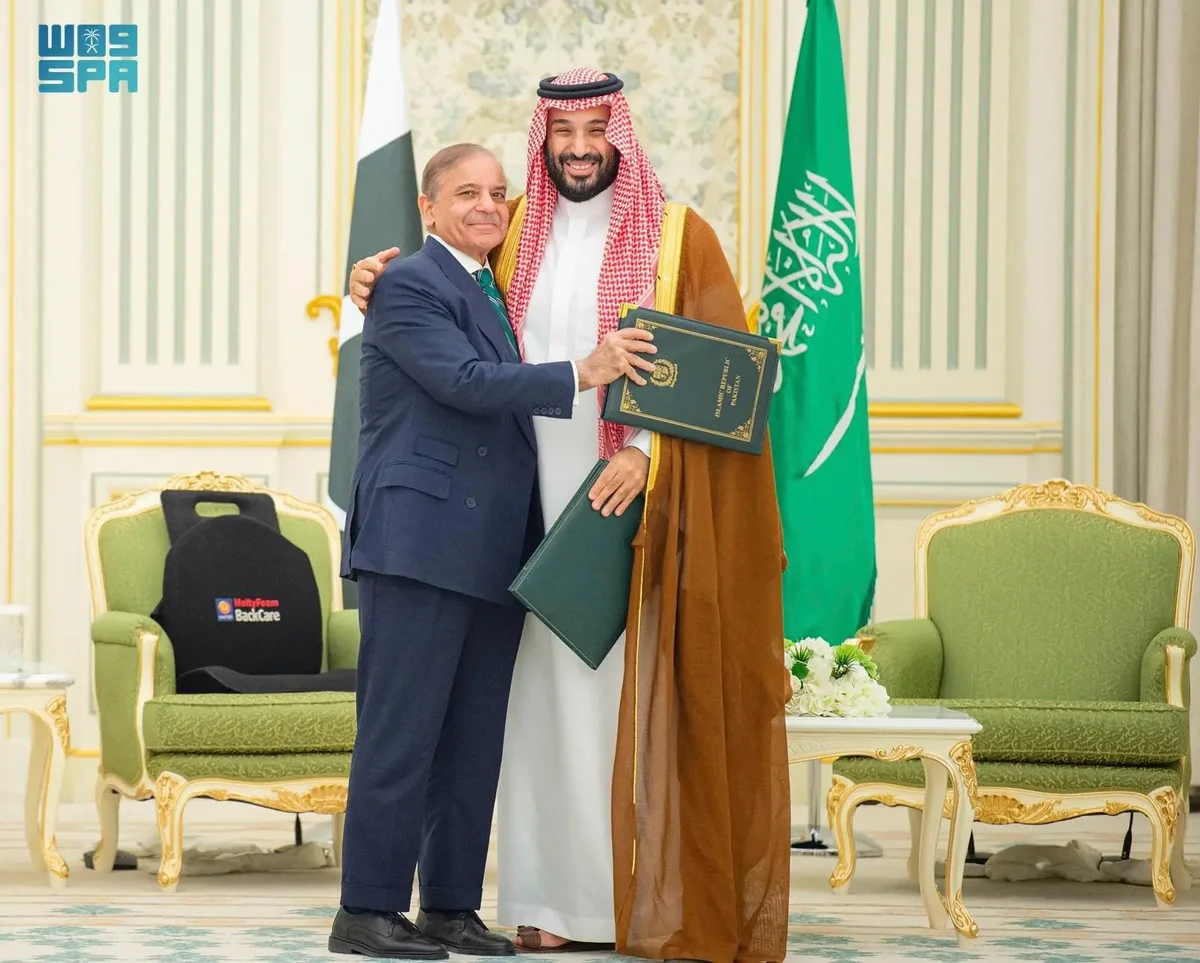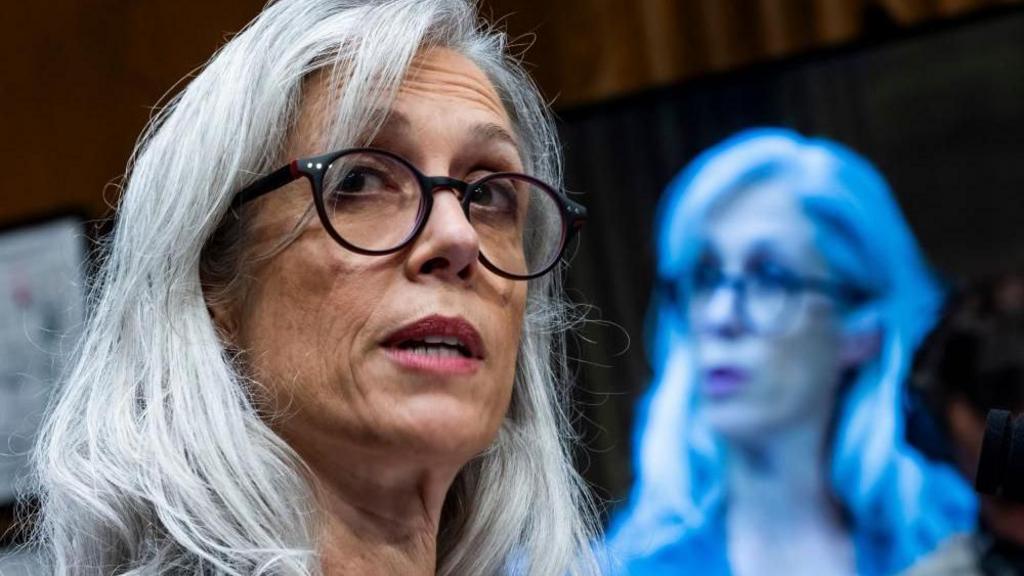By Maroosha Muzaffar
Copyright independent

Saudi Arabia’s mutual defence pact with Pakistan, which would regard aggression against either country as an act of aggression against both, comes at a time when the Middle East grows increasingly wary about the reliability of America as a security guarantor.
The agreement was signed during Pakistan prime minister Shehbaz Sharif’s visit to Riyadh and framed as a step toward regional peace and deterrence.
“This agreement is a culmination of years of discussions. This is not a response to specific countries or specific events but an institutionalisation of longstanding and deep cooperation between our two countries,” a senior Saudi official told Reuters.
When pressed on whether the newly signed pact obliges Pakistan to extend a nuclear umbrella to Saudi Arabia, the official said: “This is a comprehensive defensive agreement that encompasses all military means.”
The Saudi agreement comes just months after Pakistan’s military clash with India in May this year and days following Israel’s strike on Qatar, deepening the crisis in the Middle East.
For Pakistan, the agreement provides support from a rich Gulf ally and boosts its standing at a time of tension with India. For Saudi Arabia, it means closer ties with a nuclear-armed Muslim country that has backed it in the past.
“This agreement, which reflects the shared commitment of both nations to enhance their security and to achieving security and peace in the region and the world, aims to develop aspects of defence cooperation between the two countries and strengthen joint deterrence against any aggression,” a statement from the Pakistani prime minister’s office said.
“The agreement states that any aggression against either country shall be considered an aggression against both,” it said.
Just hours after the Saudi-Pakistan mutual defence deal was inked, India responded cautiously.
In a statement, the Indian ministry of external affairs said the pact had long been under discussion and that India would study its implications, while reiterating its commitment to protecting national interests and ensuring “comprehensive national security”.
“We have seen reports of the signing of a strategic mutual defence pact between Saudi Arabia and Pakistan. The government was aware that this development, which formalises a long-standing arrangement between the two countries, had been under consideration,” said India’s external affairs ministry official spokesperson, Randhir Jaiswal.
“We will study the implications of this development for our national security as well as for regional and global stability. The government remains committed to protecting India’s national interests and ensuring comprehensive national security in all domains,” Mr Jaiswal added.
The signing of the pact came just two days after an emergency joint session of the Arab League and the Organisation of Islamic Cooperation (OIC) convened in response to Israel’s 9 September strike on Doha.
That attack, which targeted Hamas political leaders as they met to discuss a US-backed ceasefire plan, drew sharp condemnation from across the Arab and Islamic world.
The defence deal potentially could reshape regional dynamics, compelling India, Iran, and even the US to rethink their strategies in a rapidly changing security landscape, observers noted.
Asfandyar Mir, a senior fellow at the Washington DC-based Stimson Center, said the pact was a “watershed” moment for both countries. “Pakistan previously maintained mutual defence treaties with the United States during the Cold War, but they crumbled by the ’70s. Even with China, despite extensive defence cooperation, Pakistan lacks a formal mutual defence pact,” Mr Mir told Al Jazeera.
The Saudi-Pakistan defence deal also comes against the backdrop of Saudi Arabia’s long-standing defence and economic ties with both India and Pakistan. While Riyadh has linkages with India, it has also historically backed Pakistan, especially after the 1971 war.
The foundations of Saudi Arabia’s bond with Pakistan go back even before Pakistan’s creation, when the Saudi royal family expressed early support for the Muslim League’s struggle in South Asia.
After independence in 1947, Riyadh was among the first to recognise the new state, signalling its intent to stand firmly with Pakistan. That commitment was evident again during the 1971 crisis in what was then called East Pakistan, when Saudi leaders saw the country’s disintegration as a blow to the Muslim world.
Riyadh also aligned its position on Bangladesh with Islamabad’s, withholding formal recognition of Dhaka until Pakistan did so in February 1974. Even during the 1972 and 1973 Hajj seasons, Saudi authorities accepted Bangladeshi passports only after first seeking Pakistan’s approval.
However, the senior Saudi official, speaking on condition of anonymity, admitted that Riyadh must carefully balance its ties with Pakistan’s nuclear-armed rival, India.
“Our relationship with India is more robust than it has ever been. We will continue to grow this relationship and seek to contribute to regional peace whichever way we can,” the official said.
“India and Pakistan have fought four wars and had at least three other major clashes. Saudi Arabia had to have considered this in negotiating the statement released today. It does not mean Riyadh envisions a meaningful role in the next India-Pakistan clash,” Christopher Clary, associate professor of political science at the University of Albany, wrote on X.
“In the immediate term, this agreement will consolidate and formalise multi-prong defence cooperation already underway, and new avenues to expand it via joint trainings, defence production and potential expansion of Pakistani troops contingent in Saudi Arabia will be explored,” Muhammad Faisal, a South Asia security researcher at the University of Technology Sydney, told Al Jazeera.
The new defence pact is now poised to reshape strategic equations across South Asia and the Gulf.
For India, the agreement complicates its rivalry with Pakistan, even as it maintains close ties with Riyadh. For Iran, it underscores Saudi Arabia’s effort to build stronger military alliances at a time of regional tension. And for the US, the pact signifies the growing willingness of Gulf states to look beyond Washington for security guarantees.
The defence pact’s timing is also significant because Israel’s strike on Qatar rattled Gulf monarchies, which, despite hosting major US bases, are increasingly uneasy about Washington’s seeming lack of willingness to restrain Israel.
For states like Saudi Arabia, Qatar, and the UAE – long reliant on US security guarantees – the incident underscored the need to strengthen their own regional defence networks. Saudi Crown Prince Mohammed bin Salman condemned the recent strike on Doha as an act of “brutal aggression” that demanded “Arab, Islamic and international action”.
For the US, the deal adds new challenges in balancing its ties with both India and Saudi Arabia. It also comes as Pakistan becomes more outspoken in criticising Israel’s actions in Gaza and against Iran.
Zalmay Khalilzad, a former US diplomat said the deal comes in “dangerous times”, according to Associated Press.
“Pakistan has nuclear weapons and delivery systems that can hit targets across the Middle East, including Israel. It also is developing systems that can reach targets in the US,” Mr Khalilzad wrote on X.
Syed Muhammad Ali, a security analyst based in Islamabad, pointed out that Pakistan’s National Command Authority, which controls the country’s nuclear arsenal, had not commented about the defence pact. He added, however, that Pakistan would still be able to respond to Israel effectively, even without relying on the deterrent power of its nuclear weapons.
“Pakistan is more than confident that its conventional capability is adequate,” he said. “Pakistan’s military … is adequate enough to improve the security of Saudi Arabia without having to resort to the nuclear option.”



